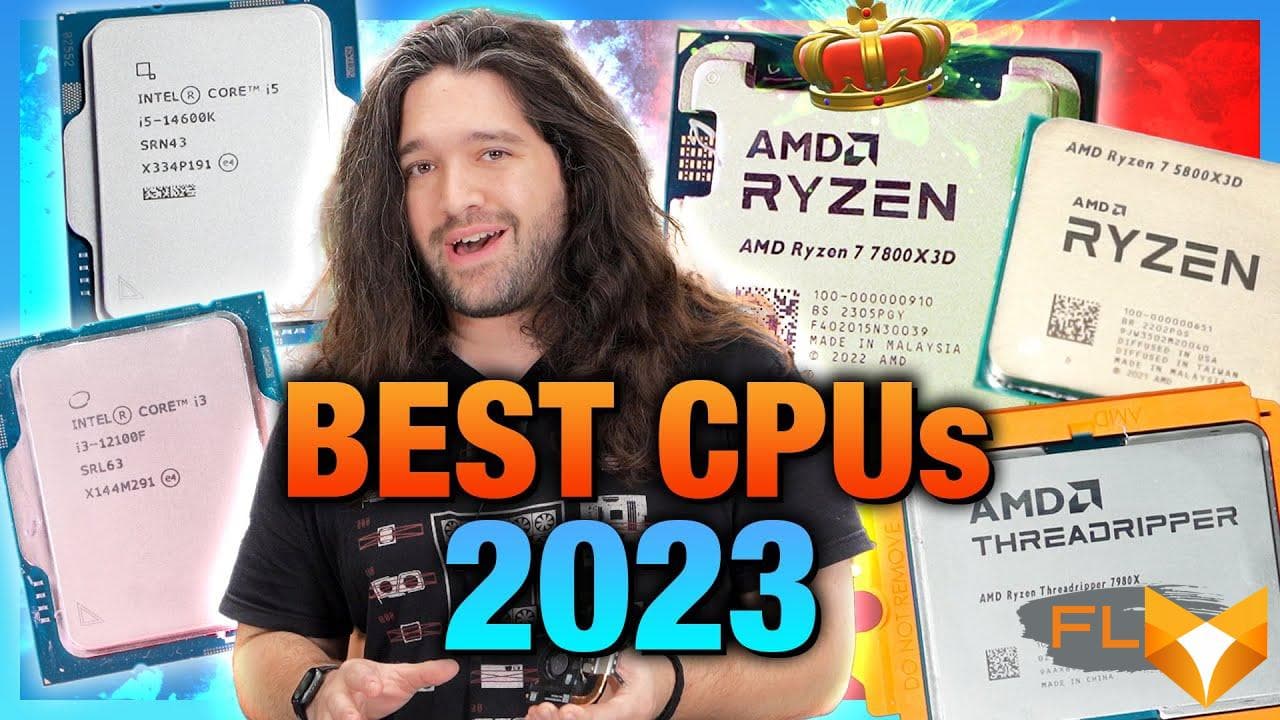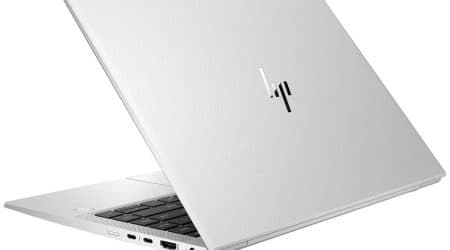


Best Cpu for VR Performance in 2024 7950x3d  vs 5800x3d
Virtual reality (VR) technology has revolutionized the way we experience and interact with digital content. Whether you’re gaming, watching movies, or exploring virtual worlds, having a powerful CPU is crucial for a smooth and immersive VR experience. With so many options available in the market, it can be challenging to choose the best CPU for VR.
When it comes to VR, performance is key. A powerful CPU ensures that your VR applications run smoothly and without lag, providing you with a seamless and immersive experience. It’s important to choose a CPU that can handle the demanding requirements of VR, such as rendering high-resolution graphics and processing complex algorithms.
One of the top CPUs for VR is the AMD Ryzen 9 5900X. With its 12 cores and 24 threads, this CPU delivers exceptional multi-threaded performance, making it perfect for VR gaming and content creation. The Ryzen 9 5900X also boasts a high clock speed and a large cache size, ensuring fast and efficient processing.
Another excellent option for VR enthusiasts is the Intel Core i9-10900K. With its 10 cores and 20 threads, this CPU offers exceptional gaming performance and is capable of handling the most demanding VR applications. The Core i9-10900K also features Intel’s Turbo Boost Max Technology, which enables the CPU to automatically overclock and optimize performance.
In conclusion, when it comes to choosing the best CPU for VR, it’s essential to prioritize performance and consider factors such as core count, clock speed, and cache size. The AMD Ryzen 9 5900X and Intel Core i9-10900K are both excellent choices that offer exceptional performance for VR applications. Invest in a powerful CPU, and get ready to immerse yourself in the exciting world of virtual reality.
High-Performance Processors virtual reality
When it comes to virtual reality (VR) gaming, having a high-performance processor is essential for a smooth and immersive experience. The CPU is responsible for handling all the calculations and processing in a VR game, including physics simulations, AI algorithms, and rendering.
Here are some of the best high-performance processors that are perfect for VR gaming:
1. AMD Ryzen 9 5900X
The AMD Ryzen 9 5900X is a powerhouse processor that delivers exceptional performance in VR gaming. With its 12 cores and 24 threads, it can handle even the most demanding VR games with ease. This processor also features a high clock speed and support for the latest PCIe 4.0 technology, providing fast and responsive gameplay.
2. Intel Core i9-10900K
The Intel Core i9-10900K is another excellent choice for VR gaming. With its 10 cores and 20 threads, it offers impressive multitasking capabilities and high clock speeds. This processor also comes with Intel’s Hyper-Threading technology, which allows for even better performance in VR games.
When choosing a high-performance processor for VR gaming, it’s important to consider factors such as clock speed, number of cores, and support for the latest technologies. These processors mentioned above offer exceptional performance and are sure to enhance your VR gaming experience.
Advanced Multi-Core CPUs amd intel
When it comes to virtual reality (VR), having a powerful CPU is essential for a smooth and immersive experience. One of the key factors in determining a CPU’s performance for VR is its ability to handle multiple tasks simultaneously, and this is where advanced multi-core CPUs come into play.
Multi-core CPUs are designed with multiple processor cores, which allows them to divide tasks among different cores, effectively increasing performance and speeding up complex calculations. This is particularly important for VR, as it requires a high level of processing power to render realistic graphics, track movements, and provide a seamless experience.
Advanced multi-core CPUs take this concept even further by offering a higher number of cores and improved efficiency. These CPUs are often found in high-end gaming PCs and workstations, where performance is crucial. They are designed to handle demanding VR applications and can handle multiple tasks with ease.
Furthermore, advanced multi-core CPUs are equipped with technologies such as hyper-threading, which allows each core to work on multiple threads simultaneously, further increasing performance. This is particularly beneficial for VR, as it can help reduce latency and improve overall responsiveness.
When choosing a CPU for VR, it is important to consider the number of cores and their clock speed. While higher core counts generally provide better performance, clock speed also plays a crucial role in determining how fast the CPU can process instructions. Additionally, factors such as cache size and thermal design power should also be taken into account.
In conclusion, advanced multi-core CPUs are essential for a smooth and immersive VR experience. They offer higher performance, improved efficiency, and are capable of handling the demanding tasks required by VR applications. When choosing a CPU for VR, it is important to consider factors such as core count, clock speed, and other specifications to ensure optimal performance.
Remember, investing in a high-quality CPU is crucial for VR, as it is one of the key components that contribute to a seamless and immersive experience.
Top-Tier Gaming Processors vr performance
When it comes to VR gaming, having a powerful processor is essential for a smooth and immersive experience. The CPU (central processing unit) is responsible for handling all the calculations and tasks required to run the virtual reality content. In this section, we will take a look at some of the best top-tier gaming processors available on the market.
1. Intel Core i9-10900K
The Intel Core i9-10900K is a beast of a CPU that offers incredible performance for gaming. With its 10 cores and 20 threads, it has the power to handle even the most demanding VR games without breaking a sweat. Its high clock speeds and unlocked multiplier make it an overclocker’s dream, allowing for even more performance.
2. AMD Ryzen 9 5900X
The AMD Ryzen 9 5900X is another top-tier gaming processor that excels in VR gaming. With its 12 cores and 24 threads, it offers excellent multitasking capabilities and can handle intense gaming sessions with ease. Its high clock speeds and efficient architecture make it an excellent choice for VR enthusiasts.
3. Intel Core i7-10700K
The Intel Core i7-10700K is a powerful gaming processor that provides excellent performance in VR gaming. With its 8 cores and 16 threads, it can handle most VR games without any issues. Its high clock speeds and Intel’s Turbo Boost technology ensure smooth gameplay and fast load times.
4. AMD Ryzen 7 5800X
The AMD Ryzen 7 5800X is a high-performance gaming processor that delivers great results in VR gaming. With its 8 cores and 16 threads, it can handle most VR games with ease. Its high clock speeds and advanced architecture make it a fantastic choice for gamers looking for top-tier performance.
These top-tier gaming processors offer unmatched performance and are ideal for gamers looking to take their VR gaming experience to the next level. Whether you choose an Intel or AMD CPU, you can’t go wrong with any of these choices.
Note: It’s important to note that a powerful GPU is also crucial for VR gaming, so make sure to pair these processors with a high-end graphics card for the best experience.
Powerful CPU Options
When it comes to VR gaming, having a powerful CPU is essential to ensure smooth and lag-free gameplay. Here are some of the best CPU options that you should consider:
- Intel Core i9-9900K: This CPU from Intel offers impressive performance with its 8 cores and 16 threads. It has a base clock speed of 3.6 GHz, which can be boosted up to 5.0 GHz for intensive VR gaming.
- AMD Ryzen 9 3900X: With its 12 cores and 24 threads, this CPU from AMD is a powerhouse for VR gaming. It has a base clock speed of 3.8 GHz and a maximum boost clock of 4.6 GHz, providing excellent performance and multitasking capabilities.
- Intel Core i7-9700K: Another great option from Intel, this CPU features 8 cores and 8 threads. With a base clock speed of 3.6 GHz and a maximum boost clock of 4.9 GHz, it delivers exceptional performance for VR gaming.
- AMD Ryzen 7 3800X: This CPU from AMD offers 8 cores and 16 threads, making it a reliable choice for VR gaming. It has a base clock speed of 3.9 GHz and a maximum boost clock of 4.5 GHz, ensuring smooth performance and responsiveness.
- Intel Core i5-8600K: If you’re on a budget but still want a powerful CPU for VR gaming, the Intel Core i5-8600K is a great option. With 6 cores and 6 threads, it delivers impressive performance at a lower cost.
Overall, these powerful CPU options provide the necessary performance and processing power to handle the demanding requirements of VR gaming. Whether you choose an Intel or AMD CPU, you can expect smooth and immersive gameplay with these options.
Cutting-Edge VR-compatible CPUs
VR gaming requires a powerful CPU to handle the intense processing demands of virtual reality. With the rapid advancements in technology, finding a cutting-edge CPU that is capable of handling VR experiences is essential.
1. Intel Core i9-9900K
The Intel Core i9-9900K is a top-of-the-line CPU that delivers exceptional performance for VR gaming. With its eight cores and 16 threads, it can handle multiple tasks simultaneously, ensuring smooth gameplay and immersive VR experiences. It also features a high clock speed and Intel Turbo Boost 2.0 technology, allowing for superior performance and responsiveness.
2. AMD Ryzen 7 5800X
The AMD Ryzen 7 5800X is another excellent choice for VR gaming. With its advanced architecture and eight cores, it provides exceptional performance and multitasking capabilities. It also features high clock speeds and precision boost technology, allowing for seamless VR experiences with minimal latency.
These cutting-edge CPUs offer exceptional power and performance, ensuring an immersive VR gaming experience. Whether you choose Intel or AMD, both options provide the necessary processing capabilities for running VR games and applications smoothly.
Best CPUs for Immersive VR Experiences
Virtual Reality (VR) has revolutionized the way we experience digital content, allowing us to fully immerse ourselves in virtual worlds. To ensure a seamless and immersive VR experience, a powerful CPU is essential. With a high-end CPU, you can expect smooth gameplay, realistic graphics, and minimal latency.
1. Intel Core i9-9900K
The Intel Core i9-9900K is one of the best CPUs for VR, offering remarkable performance and power. With its 8 cores and 16 threads, this CPU can handle even the most demanding VR games and applications. It has a base clock speed of 3.6 GHz, which can be overclocked to 5 GHz for even better performance. The i9-9900K also features Intel’s Turbo Boost Technology, which automatically increases the clock speed when needed.
2. AMD Ryzen 9 3900X
The AMD Ryzen 9 3900X is another excellent choice for VR enthusiasts. With its 12 cores and 24 threads, this CPU can handle multitasking with ease. It has a base clock speed of 3.8 GHz and can be boosted up to 4.6 GHz. The Ryzen 9 3900X also features AMD’s Precision Boost technology, which optimizes performance based on temperature and power consumption.
When choosing a CPU for VR, it’s essential to consider factors such as clock speed, number of cores and threads, and compatibility with VR headsets. Additionally, it’s important to ensure that your CPU is paired with a capable GPU and sufficient RAM for optimal VR performance.
| CPU | Cores | Threads | Base Clock Speed | Boost Clock Speed |
|---|---|---|---|---|
| Intel Core i9-9900K | 8 | 16 | 3.6 GHz | 5 GHz |
| AMD Ryzen 9 3900X | 12 | 24 | 3.8 GHz | 4.6 GHz |
Both the Intel Core i9-9900K and AMD Ryzen 9 3900X are excellent choices for those looking to build a VR-ready gaming rig. When paired with a powerful GPU, these CPUs can deliver an immersive VR experience with smooth frame rates and crisp visuals.
Future-Proof Processing Power
When it comes to virtual reality (VR), having a powerful processor is essential to ensure smooth and immersive experiences. However, with technology constantly evolving, it’s important to consider future-proofing your processing power.
Investing in a CPU that can handle the demands of VR games and applications not only provides a better experience now, but also ensures compatibility with future VR advancements. By choosing a CPU with a high core count and fast clock speeds, you can future-proof your system against upcoming VR technologies.
Furthermore, having a powerful CPU allows for multitasking while enjoying VR. With a future-proof processor, you can run background applications, stream content, and even engage in other processor-intensive tasks simultaneously, without compromising the VR experience.
Another aspect to consider is VR game development. As technology advances, VR games will continue to push the boundaries of graphics, physics, and artificial intelligence. By having a future-proof CPU, you can experience these games at their full potential and participate in the growing world of virtual reality.
In conclusion, investing in a CPU with future-proof processing power is essential for a smooth and immersive VR experience. By choosing a CPU with high core counts, fast clock speeds, and compatibility with upcoming technologies, you can ensure that your system is ready for the future of virtual reality.
Optimal CPUs for VR Gaming
Virtual reality gaming places a high demand on computer hardware, particularly the central processing unit (CPU). To ensure a smooth and immersive VR experience, it is crucial to choose the right CPU that can handle the intensive processing requirements of VR games.
1. Intel Core i9-9900K
The Intel Core i9-9900K is widely regarded as one of the best CPUs for VR gaming. It features 8 cores and 16 threads, making it highly capable of handling the multitasking demands of VR gaming. With a base clock speed of 3.6 GHz and a maximum turbo frequency of 5.0 GHz, this CPU delivers exceptional performance and responsiveness.
2. AMD Ryzen 9 3900X
The AMD Ryzen 9 3900X is another top-tier CPU option for VR gaming. With its 12 cores and 24 threads, it offers excellent processing power and can handle even the most demanding VR games. The Ryzen 9 3900X has a base clock speed of 3.8 GHz and can turbo up to 4.6 GHz, ensuring smooth gameplay and minimal lag.
When choosing a CPU for VR gaming, it is important to consider other factors such as the motherboard compatibility, power consumption, and cooling requirements. Additionally, it is recommended to pair these CPUs with a powerful graphics card and sufficient RAM to optimize the overall gaming experience.
Ultimately, investing in a high-performance CPU is crucial for a seamless VR gaming experience. The Intel Core i9-9900K and AMD Ryzen 9 3900X are both excellent options that can provide the processing power needed for an immersive virtual reality experience.
Remember to check the system requirements of your VR games and consult with experts or online forums to ensure compatibility and optimal performance.
FAQ: Best cpus for vr
What are the best VR titles currently available for PC VR platforms like Oculus Rift, HTC Vive, and Valve Index?
Some of the best VR titles include “Beat Saber,” “Half-Life: Alyx,” “Superhot VR,” and “Boneworks.” These games offer solid VR experiences with engaging gameplay and immersive environments.
What hardware recommendations would you give for building a PC optimized for VR gaming?
For a solid VR experience, consider using an Intel CPU like the 7800X3D or a Ryzen 5 3600, paired with a high-performance GPU like an NVIDIA RTX 4090 or an AMD RX series card. Aim for at least 16GB of RAM and a fast SSD for quick loading times controller.
How does the Oculus Quest 2 compare to other VR headsets in terms of performance and features?
The Oculus Quest 2 offers solid VR performance with its standalone capabilities as well as the option to connect to a PC via Oculus Link for access to more demanding VR titles. It provides a good balance of affordability and performance.
What are some VR games like “Monster Hunter” that offer similar gameplay experiences?
Games like “The Elder Scrolls V: Skyrim VR,” “Blade & Sorcery,” and “Asgard’s Wrath” offer similar RPG and combat elements reminiscent of “Monster Hunter” in VR environments.
What factors contribute to achieving good VR performance in gaming applications?
Achieving good VR performance relies on having a powerful CPU and GPU combination, sufficient RAM (at least 16GB), fast storage, and optimizing graphical settings for smooth frame rates. Additionally, ensuring proper cooling and power supply are crucial to prevent throttling nvme m.2.
Can you recommend a high-refresh-rate VR headset for users who prioritize smooth gameplay?
The Valve Index offers a high-refresh-rate display, up to 144Hz, providing smoother motion and reduced motion sickness compared to lower refresh rate headsets.
How does the resolution and frame rate affect the graphical quality and immersion in VR games?
Higher resolutions and frame rates result in sharper images, smoother motion, and enhanced immersion in VR games. However, achieving higher resolutions and frame rates requires more powerful hardware.
What are some common CPU bottlenecks encountered when running VR applications, and how can they be addressed?
CPU bottlenecks in VR applications often occur due to single-core performance limitations. Upgrading to a newer CPU with higher single-core performance, like an Intel i7 or a high-end Ryzen processor, can help alleviate these bottlenecks.
What are some best practices for building a gaming PC optimized for VR?
When building a PC for VR gaming, prioritize components with high single-core CPU performance, ample RAM, a powerful GPU, and fast storage. Ensure proper cooling and invest in a reliable power supply to maintain stable performance during VR gameplay sessions.
Where can one find hardware benchmark tests and comparisons for GPUs like the NVIDIA RTX 4090 and AMD RX series cards?
Websites like Newegg and hardware review sites often conduct benchmark tests and provide comparisons for various GPUs, including the NVIDIA RTX 4090 and AMD RX series cards, helping users make informed decisions based on performance metrics.




